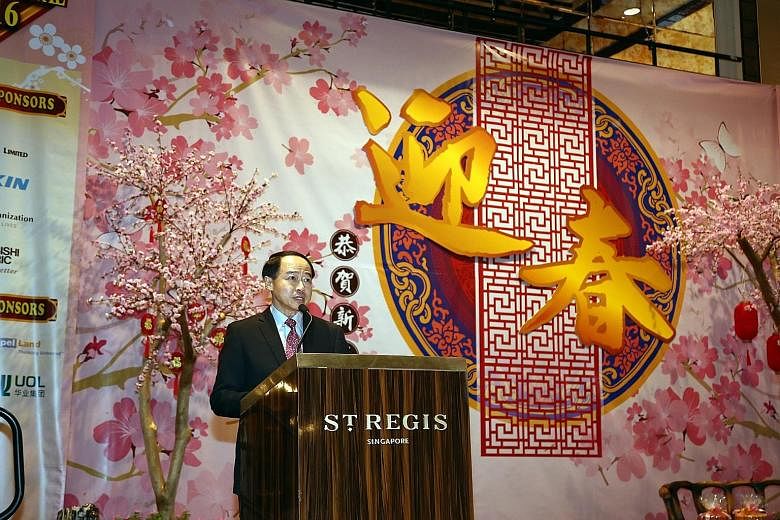The head of the property developers' body here says it is time to wind back property cooling measures given an oversupply of housing and a fragile economy.
Stepping up similar calls he made last year, Mr Augustine Tan said the measures had already succeeded in reducing home prices and sale volumes - and that it was timely to look at calibrating them.
"With safeguards in place such as the continuation of the prudent TDSR (total debt servicing ratio) measures together with the current economic situation, property prices will be kept in check," said Mr Tan, president of the Real Estate Developers' Association of Singapore (Redas).
In July last year, the Monetary Authority of Singapore said it was premature to lift property curbs, as the price correction had been modest.
Mr Tan noted that the real estate market is reeling from the compounding effects of oversupply, rising vacancy rates, weak demand and rising interest rates amid economic challenges. "There is therefore an urgent need for action to bring stability and ensure a soft landing to prevent further damage to the fragile economy," he said.
Private residential prices here fell for the ninth straight quarter in the October to December period last year, easing 0.5 per cent, bringing the full-year fall to 3.7 per cent.
Mr Tan was speaking at the association's annual Spring Festival lunch yesterday held at the St Regis Singapore.
Singapore's private residential market had a supply pipeline of over 60,000 units and a record 26,500 vacant units as at the end of last year.
"Furthermore, should the ongoing volatility of the stock market persist, which is a real risk, this could severely impact the property market," Mr Tan warned.
It could pile more pressure on developers affected by the qualifying certificate (QC) rules and the additional buyer's stamp duty (ABSD).
He said about 700 unsold units across 13 developments will be hit by QCs this year, with estimated charges of close to $100 million.
The QC rules require developers with at least one foreign shareholder or director, to complete construction within five years, and to sell all units within two years of completion. Developers that need more time have to pay extension charges.
The ABSD rules - introduced in December 2011 - mean developers here have to develop and sell all new units within five years.
If not, they must pay the 10 per cent ABSD. The levy was later raised to 15 per cent for sites acquired from Jan 12, 2013 onwards.
"The kick-in at end 2016 of the ABSD remission claw-back for developments with unsold units will put further pressures on prices," Mr Tan said.
About 6,000 unsold units in 33 developments - excluding executive condominiums - are set to be hit by the ABSD remission claw-back next year and in 2018, he said.
Analysts The Straits Times spoke to agreed with Redas' assessment of the property market.
"We are quite close to a perfect storm with everything pointing downwards. There is oversupply in practically every segment of the market and rents are coming down," noted Chesterton Singapore managing director Donald Han.
Given the weaker economic outlook, Mr Han said "it is good for the Government to start looking at pre-emptive measures, rather than wait for blood to be on the street".
Knight Frank Singapore head of research and consultancy Alice Tan said the Government could consider relaxing the ABSD rate of 7 per cent for Singaporeans buying a second residential property.
Another suggestion was to scrap the Seller's Stamp Duty (SSD) for residential property - introduced in 2010 to curb speculation.
"With falling prices and the property market remaining weak, the concern of speculation is much reduced. So the SSD removal or relaxation should not have the unintended effect of price rebound," she noted.


